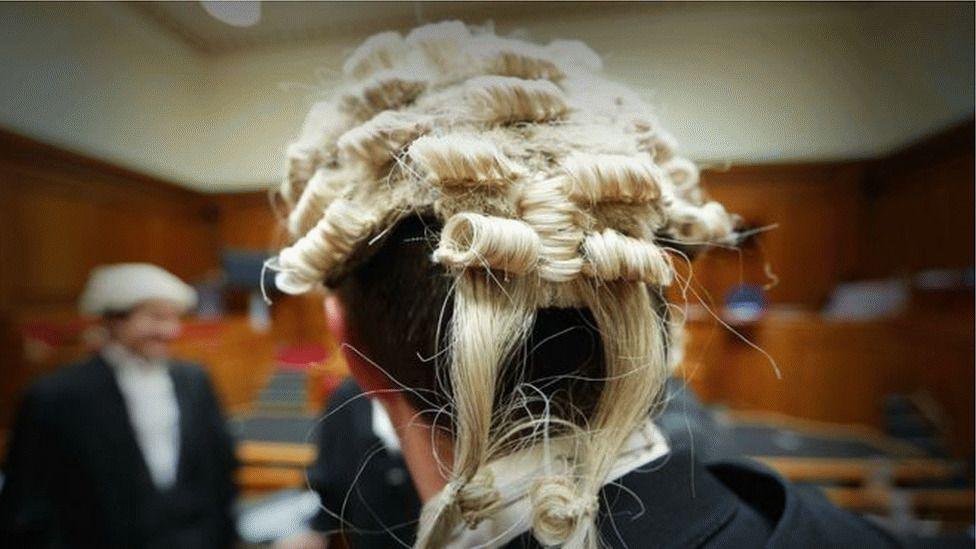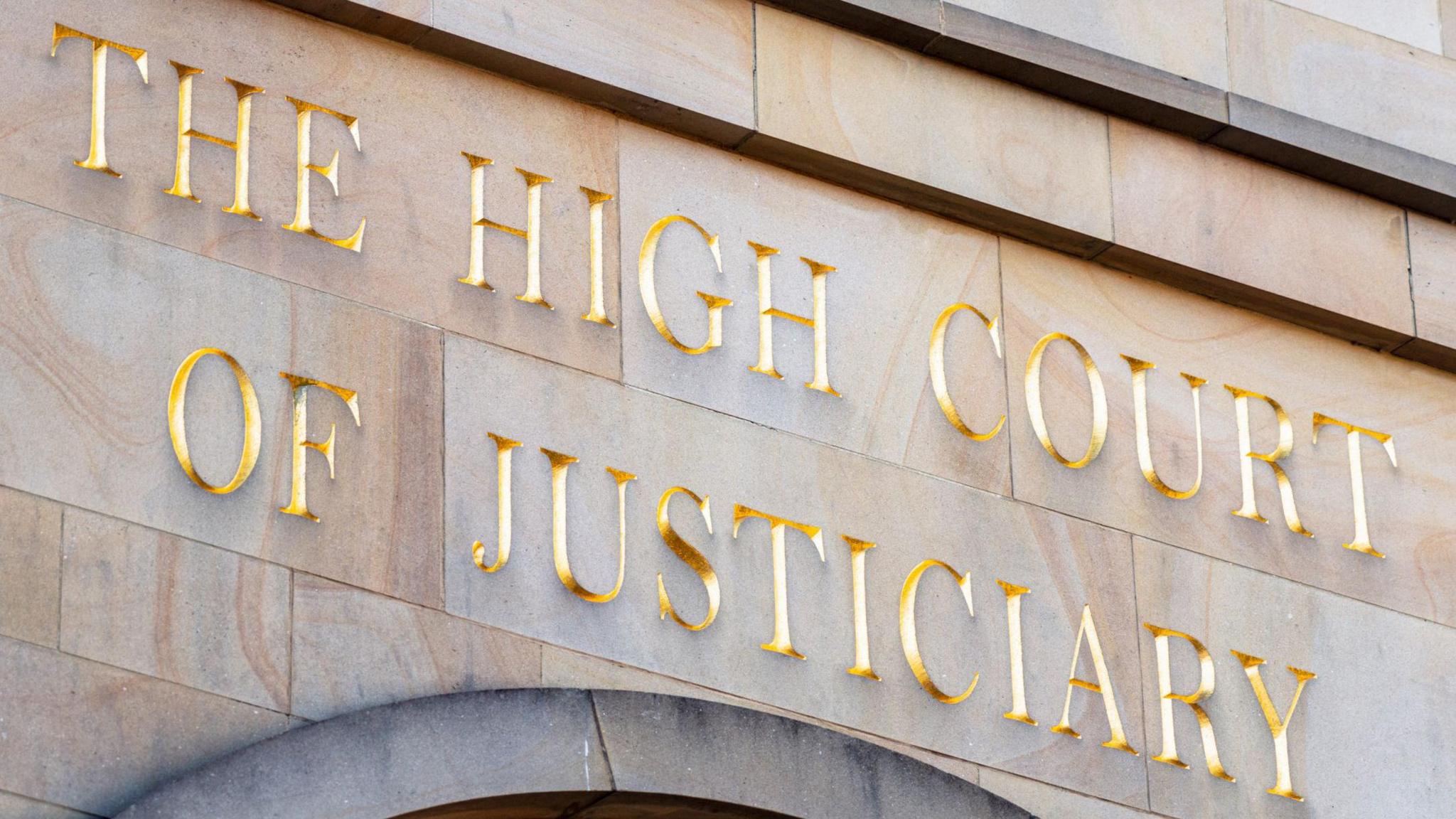Trial delays for most serious crimes set to grow

- Published
The most serious cases coming before Scotland's courts could be faced with even longer delays, despite the system's ongoing recovery from the Covid pandemic.
The number of cases waiting to go on trial in the overall court system is now lower than at any time since the first lockdown was imposed in March 2020.
But at the same time there has been a significant increase in cases sent to the High Court, which deals with offences including murder, attempted murder, rape, terrorism and death by dangerous driving.
With a limited pool of judges and defence lawyers and no scope to increase capacity, the backlog at that level is now expected to build.
In Scotland, criminal cases are heard in three types of courts: the High Court of Justiciary, Sheriff Courts, and Justice of the Peace Courts.
In the year before Covid, 1,024 cases were registered at the High Court.
Officials are predicting that is going to rise to 1,404 this financial year, a 40% increase on the figure before the pandemic.
The average waiting time between an accused pleading not guilty and their High Court trial had been falling but is now creeping back up.
This year it is expected to be 43 weeks, compared to 22 before the pandemic.
Victim Support Scotland says it is not unusual for cases to take as long as two years to get to court after the initial incident or complaint.
The organisation's chief executive Kate Wallace said: "It's too traumatising for people.
"Having to try to remember and keep that memory of what happened in the forefront of their mind so they can give good evidence at court, asking people to do that for two years and longer, it's inhumane.
"We need to recognise that what we're asking of people is not in the interests of justice."
Before the pandemic, the number of scheduled trials across the whole system was 18,355.
That peaked at 43,606 in January 2022 but introducing extra courts and using cinemas as Covid-safe jury centres helped get the backlog down. It's now standing at 17,873.
Malcolm Graham, chief executive at the Scottish Courts and Tribunals Service, is calling for a multi-million pound investment to modernise the system and relieve pressure on the High Court.
He said: "I'm very concerned about the position in the High Court. I'm acutely aware that it has a huge impact on victims and witnesses and the accused.
"If cases take longer, there's a danger that justice isn't best served and that's not what our ambition is."
Mr Graham argues that Scotland's courts are in desperate need of more digital infrastructure and technology, emulating a £1bn investment in the courts in England and Wales.
"The criminal justice system at the moment is largely a paper based system and that slows everything down," he said.
"It doesn't appear to be an option for public services to just keep growing. We have to get targeted investment into technology and better ways of working."

While the overall number of cases awaiting trial, a growing number are being dealt with by the High Court
Senior defence lawyer Tony Lenehan KC, vice-dean of the Faculty of Advocates, said increased funding for prosecutors has allowed more cases to be brought forward and should be matched with increased funding for the courts service.
"If there are no changes to the resources available to the courts, you're going to inevitably have longer delays both for witnesses waiting to give the important evidence and for people, potentially held in custody, awaiting trial," he said.
"The (Scottish) government needs to look again at the fact that although they've invested more in the prosecution, they need to invest more again in the courts, to allow the bandwidth to be expanded, so that we can deal with things at the rate and the efficiency that we presently are."
A spokesperson for the Crown Office and Procurator Fiscal Service (COPFS) said: "Together with our criminal justice sector partners, we are working at pace to respond to the increase in cases reported to us, and to address the changing landscape of increasingly complex prosecutions."
Digital evidence sharing
The Scottish government said it had provided over £201m to help the system recover from the impact of the pandemic, including £20.3m for the Scottish Courts and Tribunals Service for the current financial year.
"Scotland is the only part of the UK to have brought court backlog levels back down to below Covid levels," said a spokesperson.
The government says journey times in criminal court cases are being reduced through digital evidence sharing and an initiative called summary case management, which has also resulted in more cases being resolved at an earlier stage without going to trial.
It believes that two bills currently before parliament will also be key to modernising the justice system.
Related topics
- Published27 January

- Published21 July 2023
